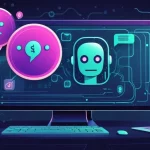OpenAI’s Apps SDK Links ChatGPT to Spotify: Crypto Opportunities and Privacy Risks

OpenAI’s Apps SDK Connects ChatGPT to Spotify and Beyond—But What’s the Crypto Angle?
OpenAI has unveiled a groundbreaking tool with its Apps SDK, allowing ChatGPT users to seamlessly interact with popular services like Spotify, Figma, and Booking.com through simple text or voice commands. Announced by Sam Altman at the company’s annual DevDay event in San Francisco, this platform promises to redefine how we engage with digital tools—but for Bitcoin enthusiasts and crypto advocates, it’s a double-edged sword of innovation and centralization risks.
- Game-Changing Integration: Apps SDK links ChatGPT with apps like Spotify and Figma for tasks such as creating playlists or designing diagrams via natural language.
- Developer Goldmine: With 800 million weekly active users, developers can build and scale apps within ChatGPT’s massive ecosystem.
- Global Access, EU Barrier: Available worldwide across all plans, except in the European Union due to undisclosed restrictions.
Unpacking the Apps SDK: A New Digital Hub
Picture asking ChatGPT to curate a Spotify playlist for your road trip or transform a rough sketch into a polished Figma diagram—all without toggling between apps. That’s the reality OpenAI is pushing with the Apps SDK, a platform that integrates ChatGPT with a slew of services including Canva, Coursera, Expedia, and Zillow. More heavy-hitters like Uber, DoorDash, and TripAdvisor are queued up for future rollouts. Users log in securely within the ChatGPT interface, and the AI even suggests relevant apps mid-conversation to tackle specific tasks. It’s polished, user-friendly, and a glimpse into a hyper-connected digital future. For more details on this integration, check out the latest update on ChatGPT’s new connections with services like Spotify and Figma.
Sam Altman, OpenAI’s founder, laid out the vision with clarity at DevDay.
“Apps that talk with ChatGPT will enable a new generation of apps that are interactive, adaptive, and personalized, that you can chat with,”
he declared, framing this as a leap toward conversational tech. For developers, the stakes are even higher. Altman noted,
“When you build with the Apps SDK, your apps can reach hundreds of millions of ChatGPT users.”
He underscored the growth potential, adding,
“We hope this will be a big deal for helping developers rapidly scale products.”
With ChatGPT boasting 800 million weekly active users, that’s not just hype—it’s a launchpad most startups can only dream of.
Under the hood, the Apps SDK offers robust tools for building both the user-facing elements (think buttons and menus) and the behind-the-scenes logic of apps. It’s powered by the open-source Model Context Protocol, or MCP, which acts like a universal adapter, ensuring apps play nicely across different systems. For tech-savvy folks, this means flexibility to create without being boxed into a single ecosystem. The SDK preview is live with full documentation, beckoning developers to dive in and innovate.
Why Crypto Enthusiasts Should Pay Attention
For those of us in the Bitcoin and blockchain space, OpenAI’s latest move isn’t just a cool tech upgrade—it’s a flashing neon sign screaming both opportunity and caution. If you’re new to crypto, here’s the crux: centralized platforms like ChatGPT, while convenient, often mean one entity holds the reins to your data. Bitcoin and its decentralized kin were born to flip that script, putting control back in your hands with tech where you literally hold the keys to your digital life. So, when a giant like OpenAI starts bridging multiple services under one AI roof, we’ve got to ask: what’s the cost to our privacy and autonomy?
Let’s not chug the AI kool-aid without reading the label. The EU restriction on Apps SDK access is a glaring warning shot. While OpenAI hasn’t spilled the beans on why European users are sidelined, it’s a safe bet that stringent data privacy laws like GDPR are at play. Centralizing logins and interactions through ChatGPT creates a single, juicy target for hackers or overzealous regulators. Remember the Cambridge Analytica fiasco? Data centralization can spiral into disaster, and for privacy hawks in the crypto crowd, this setup is a red flag the size of a blockchain.
Could Blockchain Be the Missing Piece?
Here’s where things get juicy for decentralization fans. Imagine if the Apps SDK opened the door to blockchain integrations. Picture decentralized identity solutions—think of it as showing a digital ID card without revealing your home address—letting you log into Spotify or Uber via ChatGPT without handing over sensitive credentials to a central server. Projects like Civic are already pioneering this space, proving it’s not sci-fi. Or consider instant, low-cost payments for app features using Bitcoin’s Lightning Network, which enables microtransactions (we’re talking fractions of a cent) without banks skimming off the top. Ethereum smart contracts could even power app-specific tokens for loyalty programs or access rights.
Real-world parallels exist. Take Strike, a platform leveraging Lightning Network for near-instant Bitcoin payments—pairing that with ChatGPT could streamline transactions on services like DoorDash without traditional payment processors. The potential is there to cut middlemen, enhance privacy, and align with crypto’s ethos of user sovereignty. If OpenAI is serious about “personalized” and “adaptive” apps, ignoring blockchain would be like building a spaceship and forgetting the fuel.
But let’s play devil’s advocate. Why might OpenAI hesitate on crypto integrations? For starters, the complexity of merging centralized AI with decentralized protocols is a technical nightmare. Then there’s cost—blockchain solutions aren’t always cheap to implement at scale. And don’t forget partnerships with traditional finance players who might balk at tokenized payments disrupting their cut. Still, the crypto community must push back. If we don’t advocate for decentralized alternatives now, we risk AI ecosystems becoming just another walled garden, locking us out of the digital frontier we’ve fought to open.
Privacy Pitfalls and Regulatory Roadblocks
The EU blackout isn’t a minor glitch—it’s a stark reminder of the regulatory minefield awaiting AI and blockchain alike. GDPR has already forced tech giants to scramble, and crypto projects like exchanges have felt the sting with delistings or restricted access in Europe. OpenAI’s past run-ins with data privacy scrutiny don’t inspire confidence either. Centralizing data flows through ChatGPT, no matter how slick the interface, amplifies risks of breaches or surveillance. If Satoshi Nakamoto were watching, he’d likely be drafting a manifesto on decentralizing this tech before Big Tech tightens the screws.
Globally, the clash between innovation and regulation looms large. While the Apps SDK dazzles with functionality—demos at DevDay showed software engineer Alexi Christakis pulling up Coursera tutorials and designing in Canva seamlessly—the shadow of overreach lingers. For every step toward convenience, there’s a potential misstep into a privacy quagmire. Crypto’s lesson is clear: build systems where users, not corporations, hold the power. We can’t afford to let AI platforms sidestep that principle.
What’s Next for AI and Crypto Convergence?
The horizon is murky but brimming with possibility. Will OpenAI hint at blockchain-friendly updates at future DevDays? Could regulatory shifts in the EU or elsewhere force a rethink of data centralization? For now, the Apps SDK is a functional, impressive step forward, but it’s not our utopia yet. Developers in the crypto space have a rare window to build on this platform, crafting tools that weave decentralization into the fabric of AI-driven apps. Bitcoin maximalists, Ethereum builders, and altcoin innovators alike should see this as a call to arms—let’s shape this tech before it shapes us.
The raw potential of interactive tech is undeniable, but without a fierce push for privacy and autonomy, it’s just another gilded cage. We’ve got the tools to break free; it’s time to use them.
Key Questions and Takeaways on OpenAI’s Apps SDK and Crypto Implications
- What is OpenAI’s Apps SDK, and how does it enhance ChatGPT?
It’s a platform that connects ChatGPT to services like Spotify and Figma, letting users perform tasks like creating playlists or designs through text or voice commands directly in the chat. - How could blockchain technology mesh with AI platforms like ChatGPT?
Blockchain could enable privacy-focused logins with decentralized identity and instant payments via Bitcoin’s Lightning Network or Ethereum smart contracts, slashing reliance on centralized middlemen. - Why are privacy risks with Apps SDK a concern for crypto users?
Centralizing access to multiple apps through ChatGPT creates a single point for data leaks or surveillance, contradicting crypto’s core value of user control over personal information. - What’s the significance of the EU restriction on Apps SDK access?
Likely linked to strict data laws like GDPR, it highlights regulatory tensions for AI and blockchain, signaling potential global hurdles for centralized tech rollouts. - Should the crypto community support or scrutinize AI ecosystems?
Both—support the innovation by advocating for decentralized features, but scrutinize centralization risks with relentless focus on privacy and user-first solutions.



